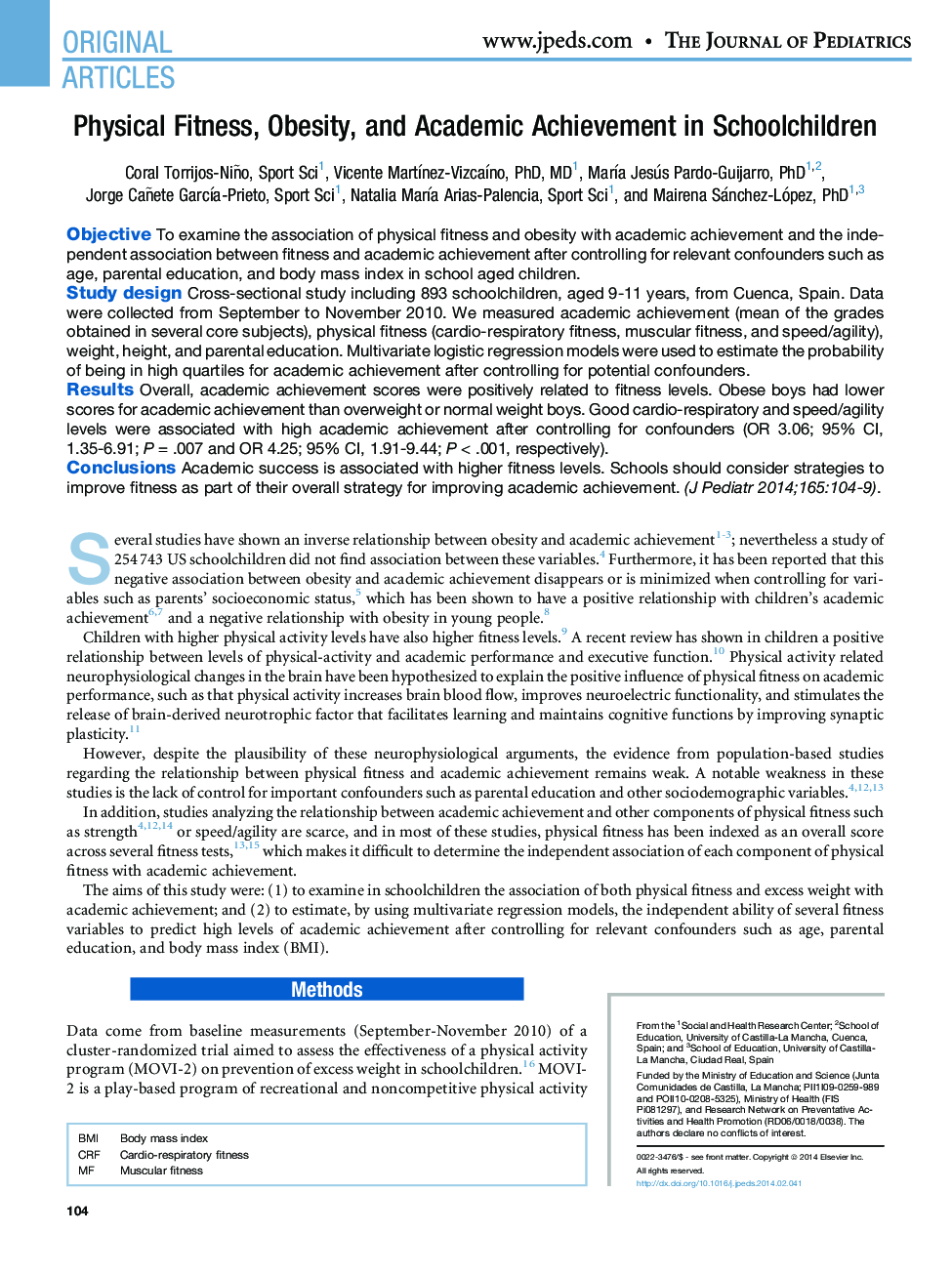| Article ID | Journal | Published Year | Pages | File Type |
|---|---|---|---|---|
| 4164875 | The Journal of Pediatrics | 2014 | 6 Pages |
ObjectiveTo examine the association of physical fitness and obesity with academic achievement and the independent association between fitness and academic achievement after controlling for relevant confounders such as age, parental education, and body mass index in school aged children.Study designCross-sectional study including 893 schoolchildren, aged 9-11 years, from Cuenca, Spain. Data were collected from September to November 2010. We measured academic achievement (mean of the grades obtained in several core subjects), physical fitness (cardio-respiratory fitness, muscular fitness, and speed/agility), weight, height, and parental education. Multivariate logistic regression models were used to estimate the probability of being in high quartiles for academic achievement after controlling for potential confounders.ResultsOverall, academic achievement scores were positively related to fitness levels. Obese boys had lower scores for academic achievement than overweight or normal weight boys. Good cardio-respiratory and speed/agility levels were associated with high academic achievement after controlling for confounders (OR 3.06; 95% CI, 1.35-6.91; P = .007 and OR 4.25; 95% CI, 1.91-9.44; P < .001, respectively).ConclusionsAcademic success is associated with higher fitness levels. Schools should consider strategies to improve fitness as part of their overall strategy for improving academic achievement.
